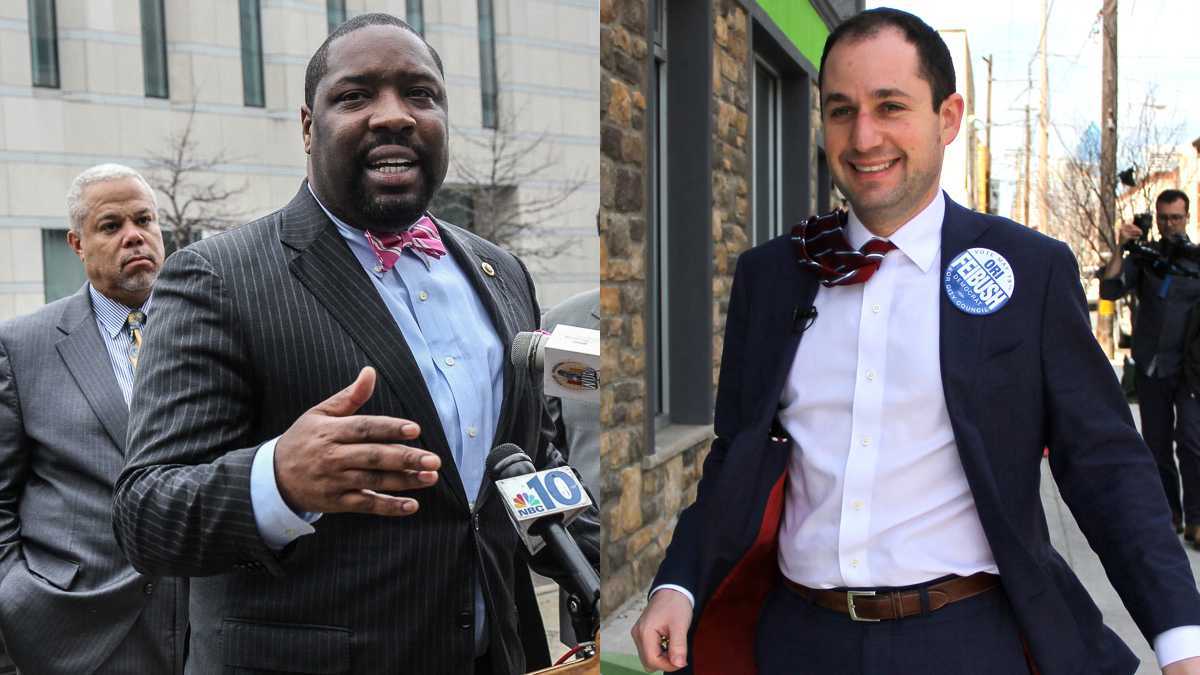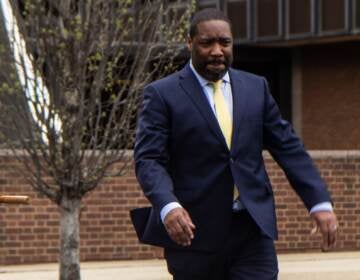Philadelphia City Council members brush off jury’s verdict in Feibush v. Johnson

Philadelphia City Council members are brushing off a federal jury’s ruling Wednesday that one of their colleagues abused his power over land use.
That power, known as “councilmanic prerogative,” allows council members tremendous power over development decisions in their districts.
The jury found Councilman Kenyatta Johnson killed the sale of two properties in retaliation against real estate developer Ori Feibush, who ran against Johnson in last year’s Democratic primary. The city was ordered to pay Feibush $34,000 in damages.
It was the first time councilmanic prerogative has been challenged in court, a fact Councilman Bill Greenlee doesn’t like.
“Let’s face it, if everything just went to the highest bidder in these areas that are desired now — Point Breeze, Francisville, Brewerytown — most poor people would be moved out,” Greenlee said, “So I think it’s a good thing to try to strive for some kind of balance.”
But will the verdict make any council members think twice before using that power?
“Not at all, because I’m never going to abuse it,” said Councilman Curtis Jones, who believes it’s a useful tool in a city that’s seeing rapid redevelopment in some neighborhoods.
“Sometimes communities suffer because they have too little,” Jones said. “Other times, communities suffer because they have too much and in that fine line is the council person and his discretion about what the people truly need.”
Although the jury found Johnson was not serving his constituents, but rather using his power to punish a political adversary, Councilwoman Maria Quinones Sanchez defended him.
“Those types of isolated incidents taken out of context could look bad, when in fact you are trying to serve the best interest,” she said.
Sanchez says Feibush — who has developed a reputation for being outspoken and aggressive — just didn’t want to take “no” for an answer and that Johnson was trying to protect residents in the South Philadelphia neighborhood of Point Breeze, “a neighborhood that has been under fear around poverty and displacement.”
As for Johnson, he insists he was only trying to set aside the land for affordable housing. He had approved Feibush’s requests to buy six other properties.
His lawyers are appealing the decision.
“We believe the ruling has wider implications as it relates to how we do our jobs as council people and most importantly, use our discretion to effectively advocate,” Johnson said.
While it’s unclear whether the verdict threatens the tradition as a whole, Philadelphia Magazine reported Wednesday the city will request the judge rule that the practice “itself couldn’t have been the cause of Johnson’s actions, and instead that it was only the vehicle.”
Last year, the Pew Charitable Trust’s Philadelphia Research Initiative published a report detailing the history of councilmanic prerogative. It found that over six years, city council never overruled when one of its members stopped a project with councilmanic prerogative.
CORRECTION: An earlier version of this story stated that Councilman Johnson was ordered to pay Feibush $34,000 in damages. PlanPhilly regrets the error.
WHYY is your source for fact-based, in-depth journalism and information. As a nonprofit organization, we rely on financial support from readers like you. Please give today.




